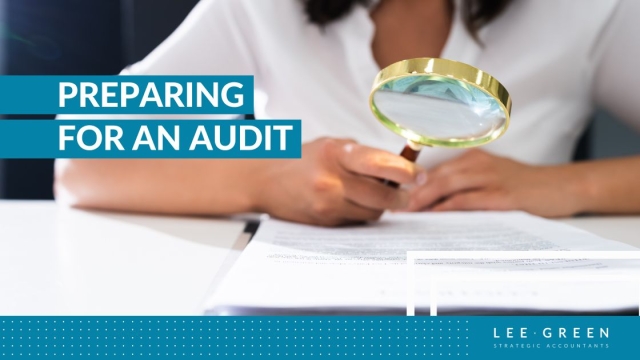
By Chris Leggett, Audit Manager.
We as auditors understand that your time is valuable and with open communication and advanced preparation you can ensure a smooth and efficient audit process. By doing the proper planning and following our tips below, not only will you be better prepared for the audit but it may even save your organisation time and money.
Here are the auditor’s tips to help your organisation to better prepare for an audit.
- Set up a planning meeting with your auditors
We suggest having a planning meeting with your auditor 3-4 months before your financial year end to ensure both you and your auditors are aware of the requirements and timing needed to ensure the audit is completed on time. Items could be discussed as follows:
- Establish a timetable with your auditor of the key deadlines and dates for the audit. Such as:
- Applicable board meetings and committee meeting dates
- When the AGM is to be held
- When the transactions and reconciliations will be finalised and the financial statements prepared ready for audit
- The date the audit report and management letter is required to be signed and issued by the auditor
- Gain an understanding of the audit process and what the auditors will be looking for during the audit (such as new accounting standards, compliance changes, key risks identified).
- Any matters that may need to be raised with you auditor, such as:
- Internal control process changes
- Identified fraud or suspicious activities
- Legal or insurance matters
- Breaches in loan covenants
- Laws and regulations
You should always keep your auditor informed on any significant matters affecting your organisation that may have occurred during the year.
- Determine if there may be any other audits that needs to be performed by the auditor, such as grant acquittals.
- Any other questions you may have regarding the audit, accounting related or any other concerns/questions you may have.
- Ask for an Audit Requirements Checklist
An audit requirements checklist is a list of documents and information the auditor will request at the time of their audit visit.
The earlier you request this from the auditor, the better prepared you will be when the auditors arrive, as you will have plenty of time to collate and to ensure you have all the documents the auditor has requested.
A good practice is to assign each responsible person to particular tasks on the checklist with a due date for the task to be completed by.
Mapping out a timeline and responsibility for compiling documents and information will ensure you are prepared when the audit starts.
- Document, document, document
We have always suggested to our clients to document all transactions, journals created, changes made during the year and any other important information. This will make it easier on the organisation to provide explanations and understandings to the auditor on why particular transactions were recorded or changed.
Organisations should retain all supporting documentation no matter how small they may be. For example, many organisations receive supplier statements but these are normally thrown out as the organisation already has a copy of the invoices, however, from an auditor’s perspective, these are quite important documents especially at year end.
- Ensure key staff are present
To get the most efficiency out of the audit, we suggest that audit dates selected for the auditors to be on-site allow for uninterrupted time with staff and to allow for meetings with auditors while on-site.
Staff and managers with specific responsibilities should ensure that they make themselves as available as they can throughout the day to answer any auditor related questions or obtain further documents that may be required.
- Learn from the past
All experiences and recommendations received in the prior year from your auditor should be taken into consideration when preparing for the forthcoming audit.
We suggest that you reflect on the audit adjustments that were made/proposed in the prior year and any recommendations that were raised regarding the compliance of the financial statements, internal control processes and governance.
- Keep open communication with the auditor
One tip that we cannot stress enough is to keep open communication with the auditor. If your organisation has any accounting related matters, financial statement matters or any significant changes that have occurred during the financial year then your organisation should contact the auditor to discuss. The early the matter is addressed between the auditor and the organisation the easier it will be at audit time.
If you have any questions about how to prepare for audit or if we can assist you with our audit services, please get in touch with our audit team.
The information provided in this article is general in nature and does not take into account any person or entity's particular financial situation or needs. Please contact us for advice specific to your circumstances.








